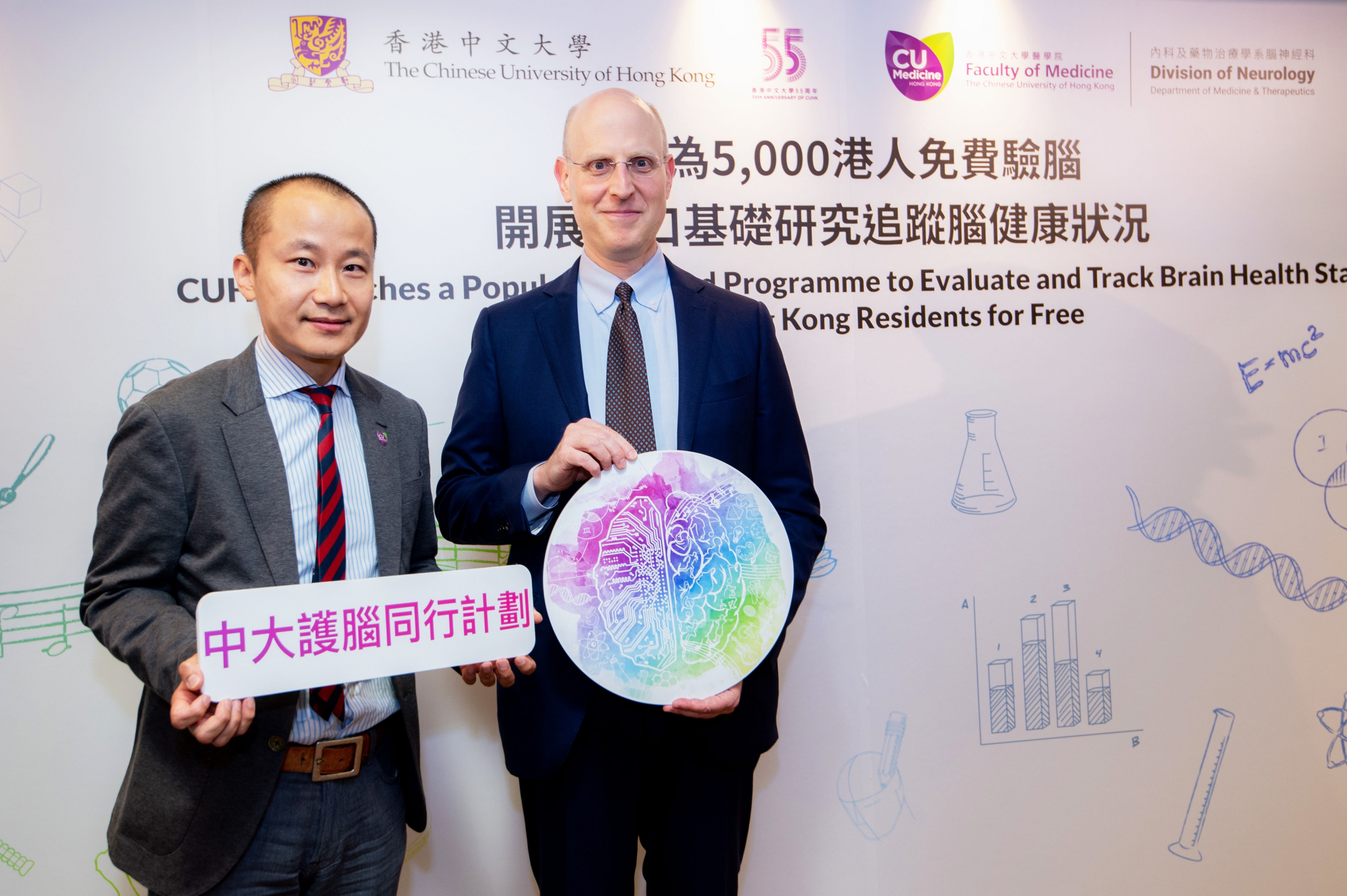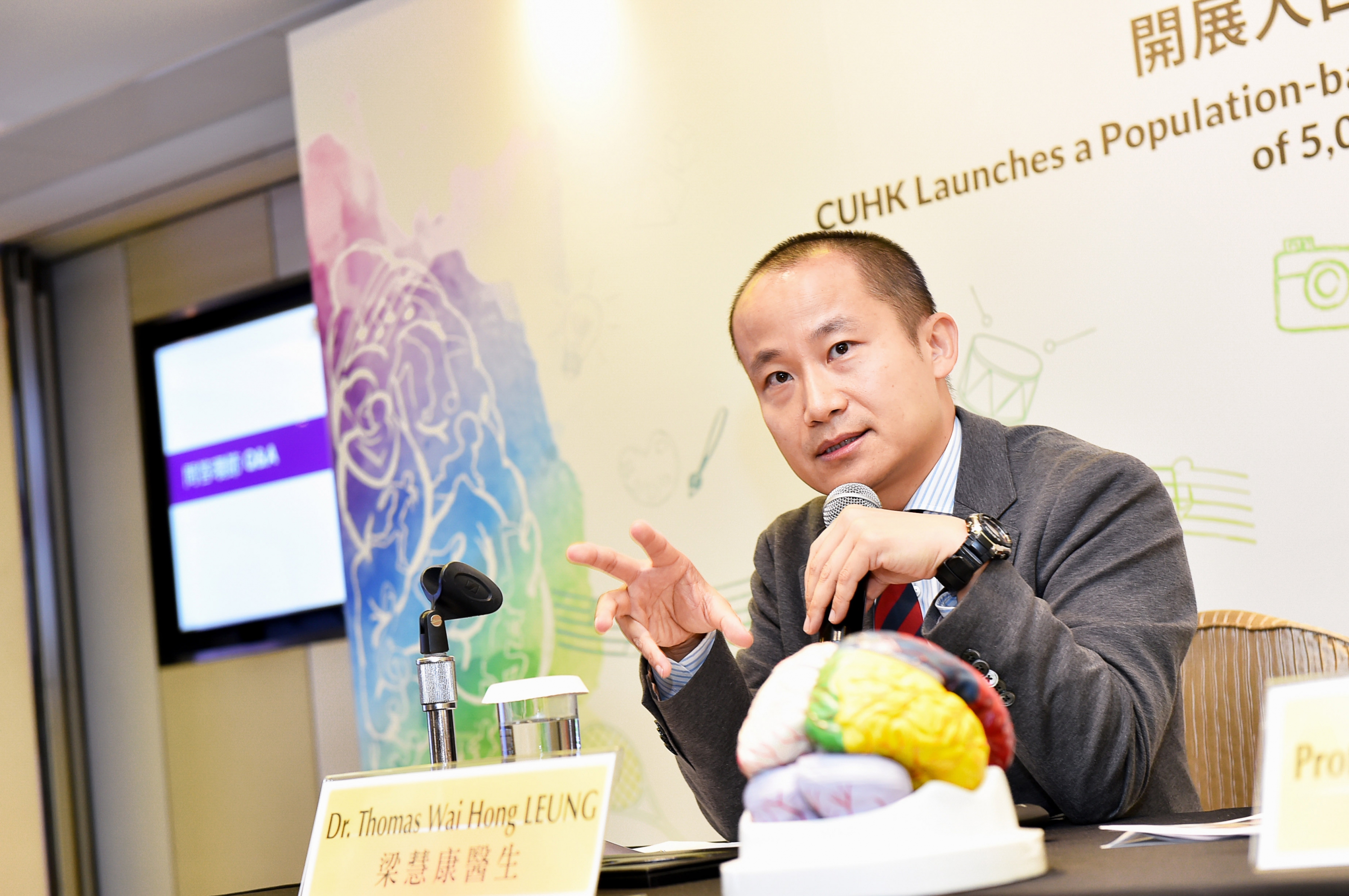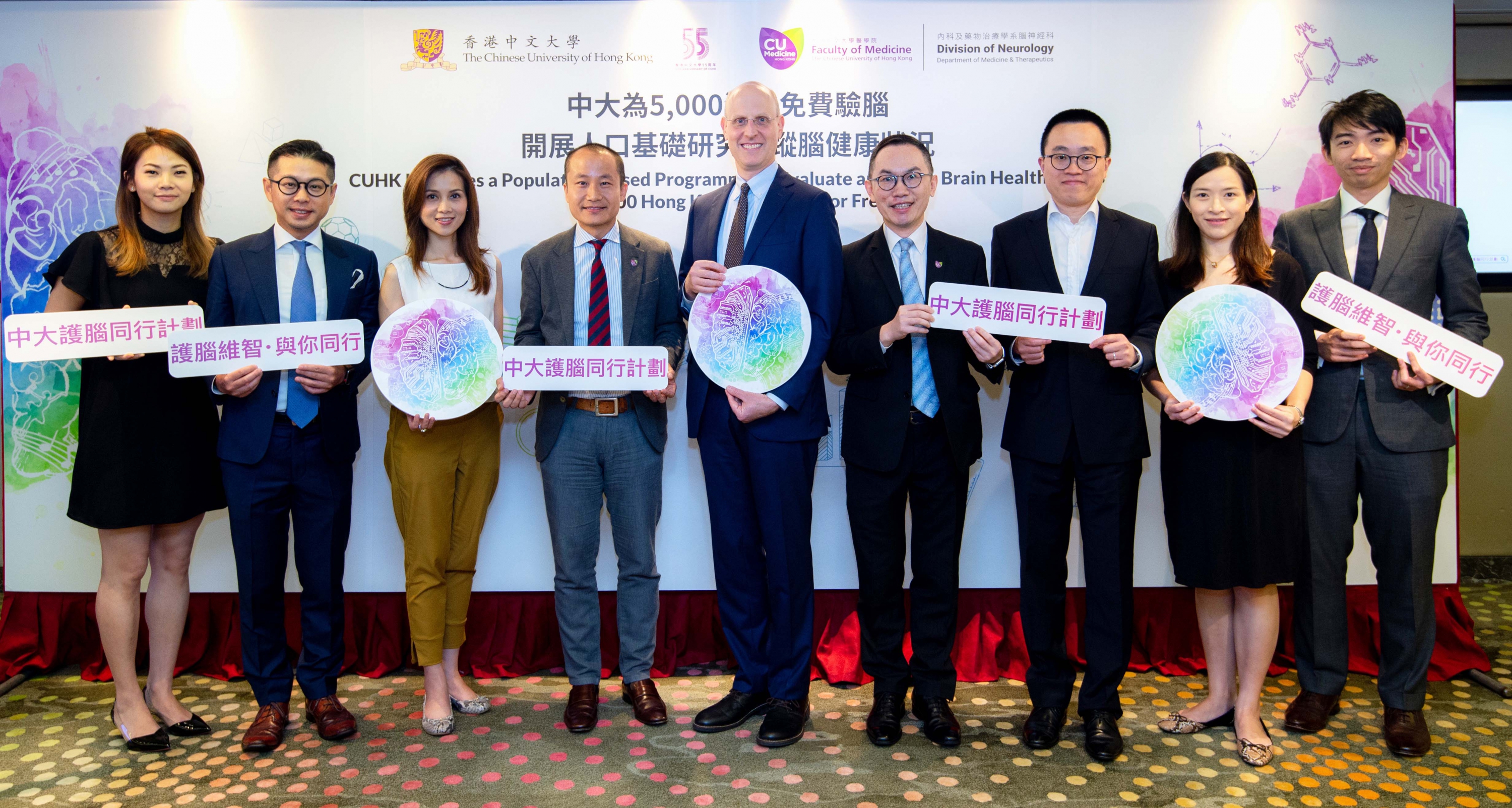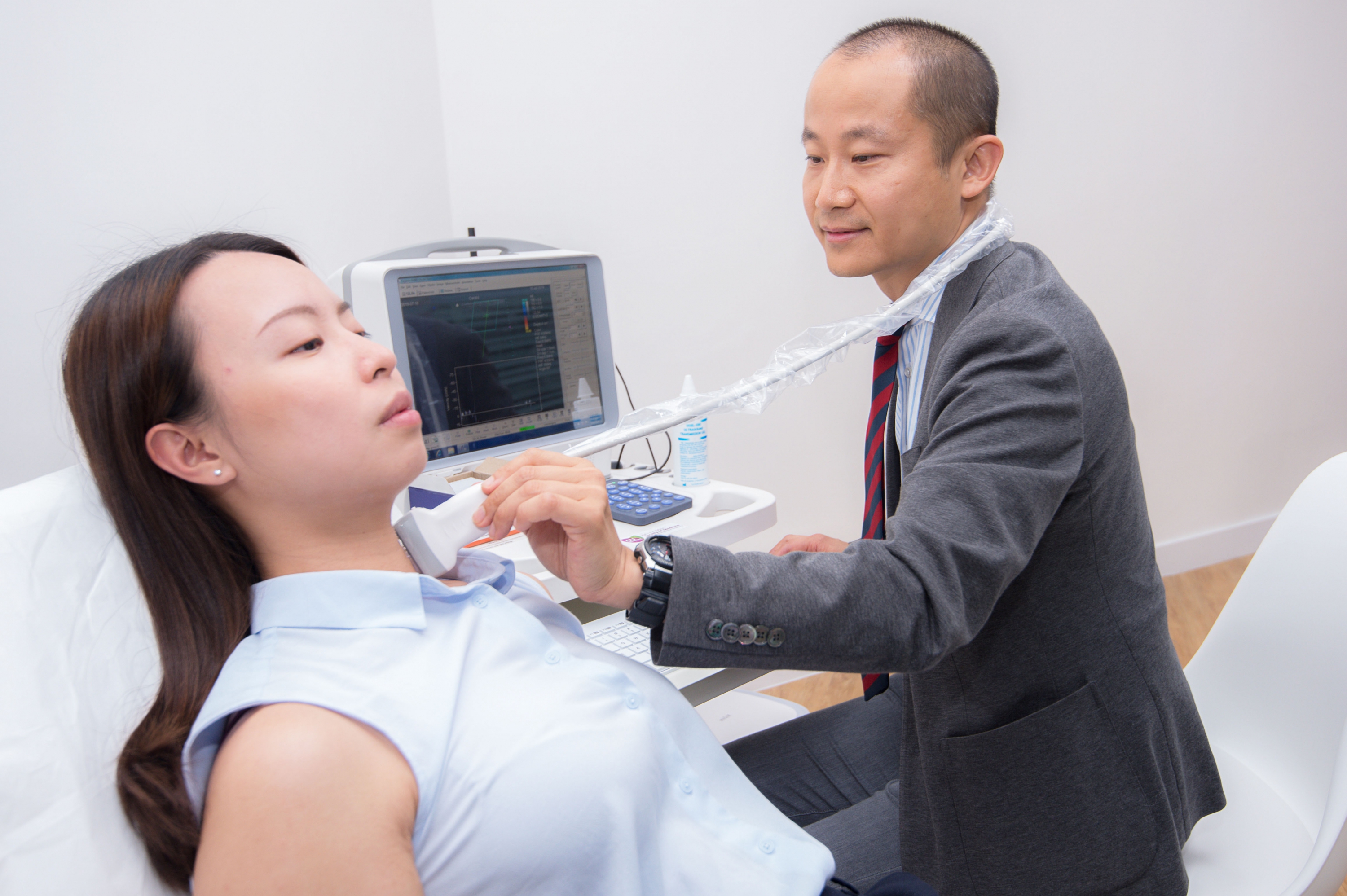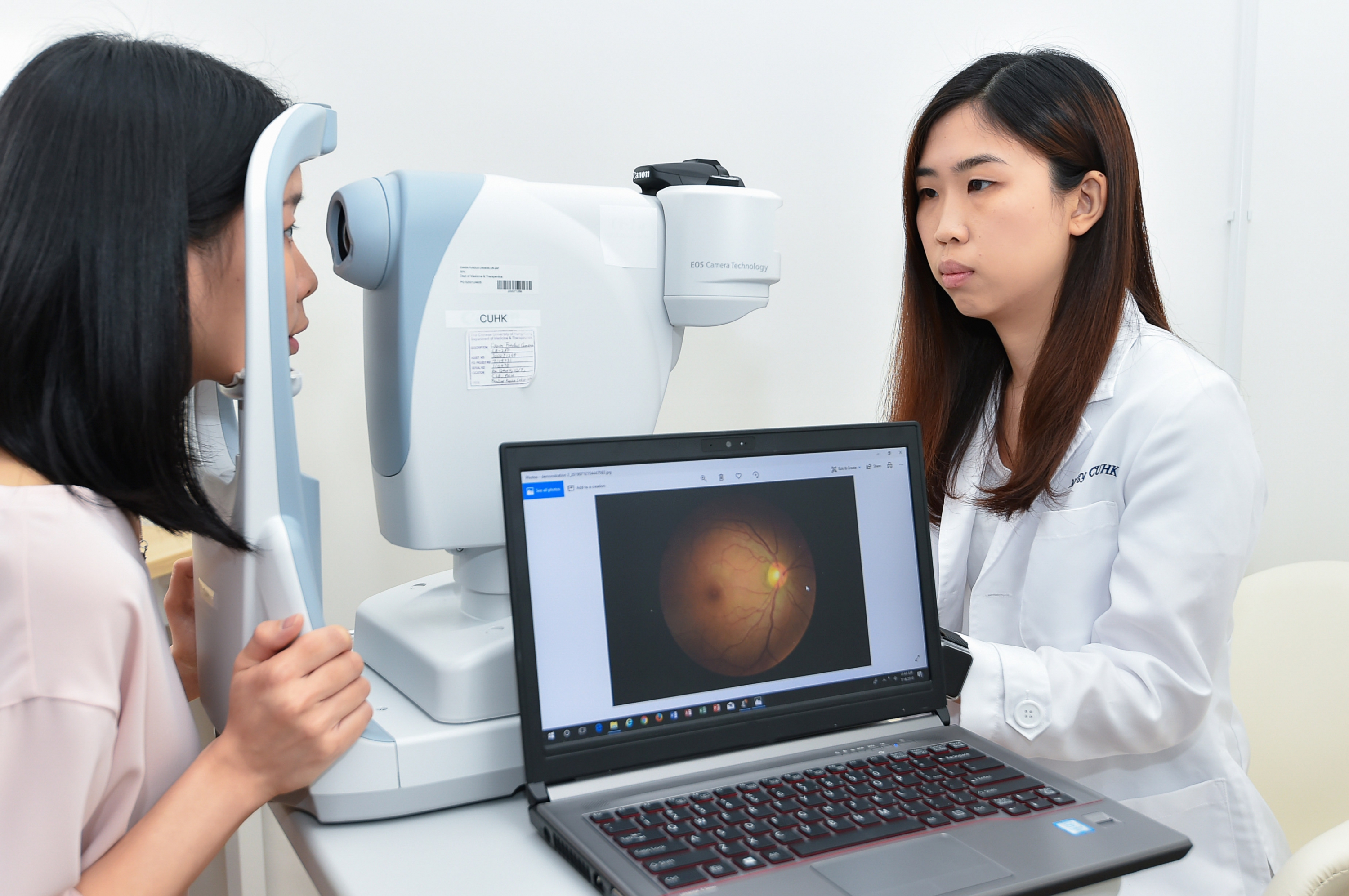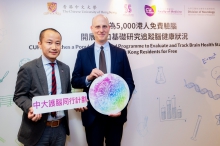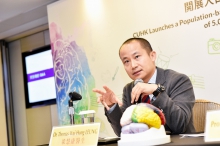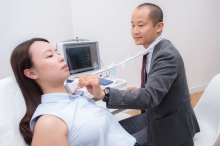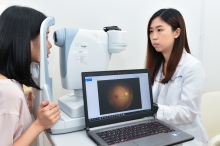CUHK
News Centre
CUHK Launches a Population-based Programme to Evaluate and Track Brain Health Status of 5,000 Hong Kong Residents for Free
The Faculty of Medicine at The Chinese University of Hong Kong (CUHK) is launching the “CUHK Brain Care Programme” (the Programme), aiming to depict and track the brain health status of 5,000 Hong Kong permanent residents through free clinical consultations and investigations. The Programme, the first population-based cohort of its kind in Hong Kong, will elucidate genetic and acquired factors that incite the development of brain diseases from midlife onwards.
With post-war baby boomers entering old age, the number of elderly persons aged 65 and over in Hong Kong is projected to be more than double in the coming 20 years, which will be an increase from 1.16 million (16.6% of the total population) in 2016 to 2.37 million (31.1% of the total population) in 2036.1 Although Hong Kong people, both men and women, enjoy the longest lifespan in the world2, it is ultimately the life-years with preserved cognition and living independence that determines the quality of life of the elderly.
Many causative factors that bring irreversible brain health decline in later years are potentially modifiable in midlife. Yet, in the absence of local population-based data, tailor-made intervention for high risk individuals is not possible. So, the Faculty of Medicine at CUHK will launch the “CUHK Brain Care Programme” and examine the interplay of genetic and local environmental factors of brain diseases from midlife into geriatric years. The data derived may improve our understanding of the evolution of brain diseases in Hong Kong and inform future healthcare policy.
Brain Health and Ageing in the two cities: Hong Kong and Boston
CUHK will launch this groundbreaking brain health study as the first international site in collaboration with the Henry and Allison McCance Center for Brain Health in Massachusetts General Hospital (Mass General, which is Harvard Medical School’s largest teaching hospital) and the Henry and Allison McCance Center for Brain Health at Mass General in Boston, USA.
Dr. Thomas Wai Hong LEUNG, the Principal Investigator of the Programme and Lee Quo Wei Associate Professor of Neurology, Department of Medicine and Therapeutics of the Faculty of Medicine at CUHK, stated, “The lifestyle and niche of Hong Kong people are unique – long stressful working hours, small living space, highly intimate social circles, and easy access to healthcare. All of these impact on physical and mental brain health in varying degrees. Through our research, we will dissect the intricate interaction between genetic, physical and social factors, and provide a basis for formulating future healthcare policies. We shall also predict challenges for some other major cities in China where populations are ageing at a rapid rate. Globally, a comparison with population data from Boston will be of great interest given the disparity in ethnicity, demographics, culture, socio-economic status and disease prevalence between Hong Kong and Boston.”
Professor Jonathan ROSAND, the Co-founder and Co-director of the Henry and Allison McCance Center for Brain Health at Mass General, the J.P. Kistler Endowed Chair in Neurology at Mass General, Professor of Neurology at the Harvard Medical School, and Associate Member of the Broad Institute remarked, “We have worked closely with the research team in the Division of Neurology of the Faculty of Medicine at CUHK to develop a shared vision for improving the brain health of our citizens. This ‘Brain Care Programme’ will further strengthen our collaboration and enrich our understanding of brain health not just in patients, but particularly for healthy citizens, many of whom are at risk of developing brain diseases because of diverse genetic and environmental factors.”
The Programme also fosters multidisciplinary collaboration between various departments of CUHK, including the Division of Gastroenterology and Hepatology, and the Division of Respiratory Medicine at the Department of Medicine and Therapeutics; the Department of Ophthalmology and Visual Sciences, the Department of Psychiatry, and the Brain and Mind Institute at CUHK. It brings together patients, clinicians and researchers to advance knowledge of brain health across the lifespan and harness this knowledge on behalf of the patients.
Free evaluation of brain health
The “CUHK Brain Care Programme” will enrol up to 5,000 Hong Kong permanent residents aged 40-74 years without diagnosis of brain diseases. An epidemiologically representative sample will be recruited from all socio-economic classes in 18 districts of Hong Kong with reference to the government census data. Participants will receive a comprehensive evaluation on brain health, free of charge, through cognitive, psychological and language assessments, specialised blood testing and bio-banking for markers of brain health and cardiovascular diseases. Some selected susceptible at-risk individuals will receive specific diagnostic tests, including vascular, retinal or brain imaging and genetic testing, advice on pharmacological intervention, and lifestyle coaching on exercise, diet, weight control, smoking cessation counselling, mindfulness and de-stress strategy.
Participants will receive counselling on identified modifiable risks that will potentially affect brain health or causing of disease after the baseline clinical and imaging evaluations. Dr. LEUNG added, “We want to be friends with participants and follow-up for life, at intervals, with a goal of proper management of these healthcare risks and/or diagnosing subclinical and clinical disease development.” Participants with significant incidental findings will be referred to relevant medical or allied health specialists. A yearly telephone or in-person follow-up will be conducted afterwards; and additional visits will be arranged in case of disease development.
Residents who are interested in the Programme can register online at http://bit.ly/cuhkbraincare. For enquiries, please contact 2790-2809 (Mon – Fri; 9 am – 5:30 pm).
[1] Census and Statistics Department. Hong Kong Population Projections 2017-2066.
[2] Ministry of Health, Labour, and Welfare, Japan. Abridged Life Tables for Japan 2017.
The Faculty of Medicine at CUHK launches the “CUHK Brain Care Programme”, aiming to depict and track the brain health status of 5,000 Hong Kong permanent residents through free clinical consultations and investigations. The Programme is launched in collaboration with the Henry and Allison McCance Center for Brain Health in Massachusetts General Hospital in Boston. This enables the data comparison between Hong Kong and Boston which will be of great interest given the disparity in demographics and disease prevalence. (From left) Dr. Thomas LEUNG, Lee Quo Wei Associate Professor of Neurology, Department of Medicine and Therapeutics of the Faculty of Medicine at CUHK and Professor Jonathan ROSAND, the Co-founder and Co-director of the Henry and Allison McCance Center for Brain Health at Mass General, the J.P. Kistler Endowed Chair in Neurology at Mass General, Professor of Neurology at the Harvard Medical School, and Associate Member of the Broad Institute.
Dr. Thomas LEUNG states that through the Programme, the research team will dissect the intricate interaction between genetic, physical and social factors of neurological diseases, and provide a basis for formulating future healthcare policies.
Participants of the programme who have the risk of developing neurological diseases may be arranged for an ultrasound examination to assess the collateral flow in different types of occlusion in the brain.


